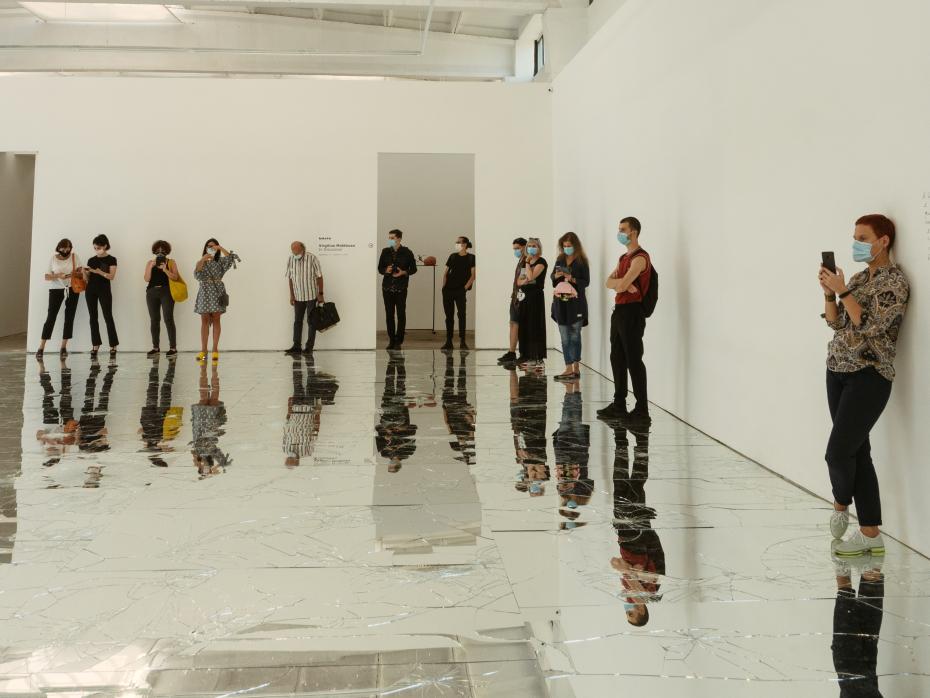
How universities can build meaningful collaborations to solve societal challenges
For universities to extend their impact and community engagement, they need to form strong partnerships with external organisations and individuals. Alicia Wilson shares seven guiding principles that support successful collaboration

Universities are builders. Whether a university occupies the status of being the builder of a jobs base as the largest employer in a community; or is the catalyst for commercial or residential development within its fixed neighbourhood; or provides the very infrastructure that fosters the creation and growth of new and emerging businesses, a university, at its core, is designed to build. However, a university’s integration into the bricks and mortar of its locale’s economic growth, its scaffolding into the very life of its neighbours, and its underpinning of a particular community is not a given. It takes deliberate effort, attention to detail and thoughtful relationship-building to create the collaborative infrastructure necessary to start solving societal challenges.
Universities are uniquely poised to collaborate with local people and organisations to address societal challenges. While the precise plans that yield meaningful collaborations will vary based on the given community, these seven guiding principles are cornerstone to being able to work successfully with other partner organisations and individuals:
1) Listen-to follow – Given that there is no shortage of problems in need of solving, priorities must be set. There are many ways a community’s priorities could be set, but the most sustainable and impactful way is by listening to those who are most impacted and then preparing to follow their direction. To transform problem-solving from an academic exercise to systemic positive change, it is necessary for a university to be guided by its community and listen with an ear to follow their direction.
2) Prepare to collaborate – Collaboration between a university and local people takes preparation. It is important to note that there are stark differences in the perspectives, resources, and respective powers of the two groups. To ensure that these differences do not divide but rather multiply the chances that societal challenges might be met, both the university and local people need to prepare to acknowledge these differences, by asset framing or defining groups by their aspirations and contributions, and account for disparities in resources, influence and power and move forward to solving problems as partners.
3) Design to learn – Formal and informal learning should be embedded in the design of any meaningful collaboration between a university and local people and organisations. Thoughtful and intentional reflections should be designed, planned and scheduled as a part of the collaborative process at set intervals. It is important for all parties to recognise that the lessons from a collaborative process are best learned in real time and in an honest and thoughtful manner.
4) Plan to iterate – It is often said that plans are made to be changed. At the start of any project, there are naturally many imperfections. One that will persist throughout any collaboration is imperfect knowledge. Both the university and local stakeholders should embrace and pay attention to new information as the project progresses. This newly learned information should not be viewed with disdain, but rather as “problem-solving gold”.
5) Invite innovation and an ongoing relationship – As the collaboration progresses and a problem is being addressed, it is important to invite innovation from all parties and engage in such a way that you facilitate relationship-building. Quite often, the winding path of problem-solving may lead to the solving of another problem not anticipated by anyone. Ongoing relationship building and inviting innovation throughout a collaboration will help generate systemic solutions to societal problems.
6) Evaluate progress – Embedded in every great collaboration is a method for evaluation. This should be done in way that allows best practices to be scaled and those things that are not working to be concluded or redesigned rapidly.
7) Share the blueprint – When successful collaborations are forged and progress is made, universities have an obligation to share those practices with others. Universities have the power to convene all segments of society and sharing useful lessons and insight from meaningful collaborations will help spread knowledge needed to address societal challenges within a particular community and beyond.
As stated at the outset, universities are builders but what they build is not a given. Put simply, thoughtful collaborations between universities and local communities provide the critical infrastructure to solve societal challenges in the best way possible, that is, together.
Alicia Wilson is vice-president for economic development at


